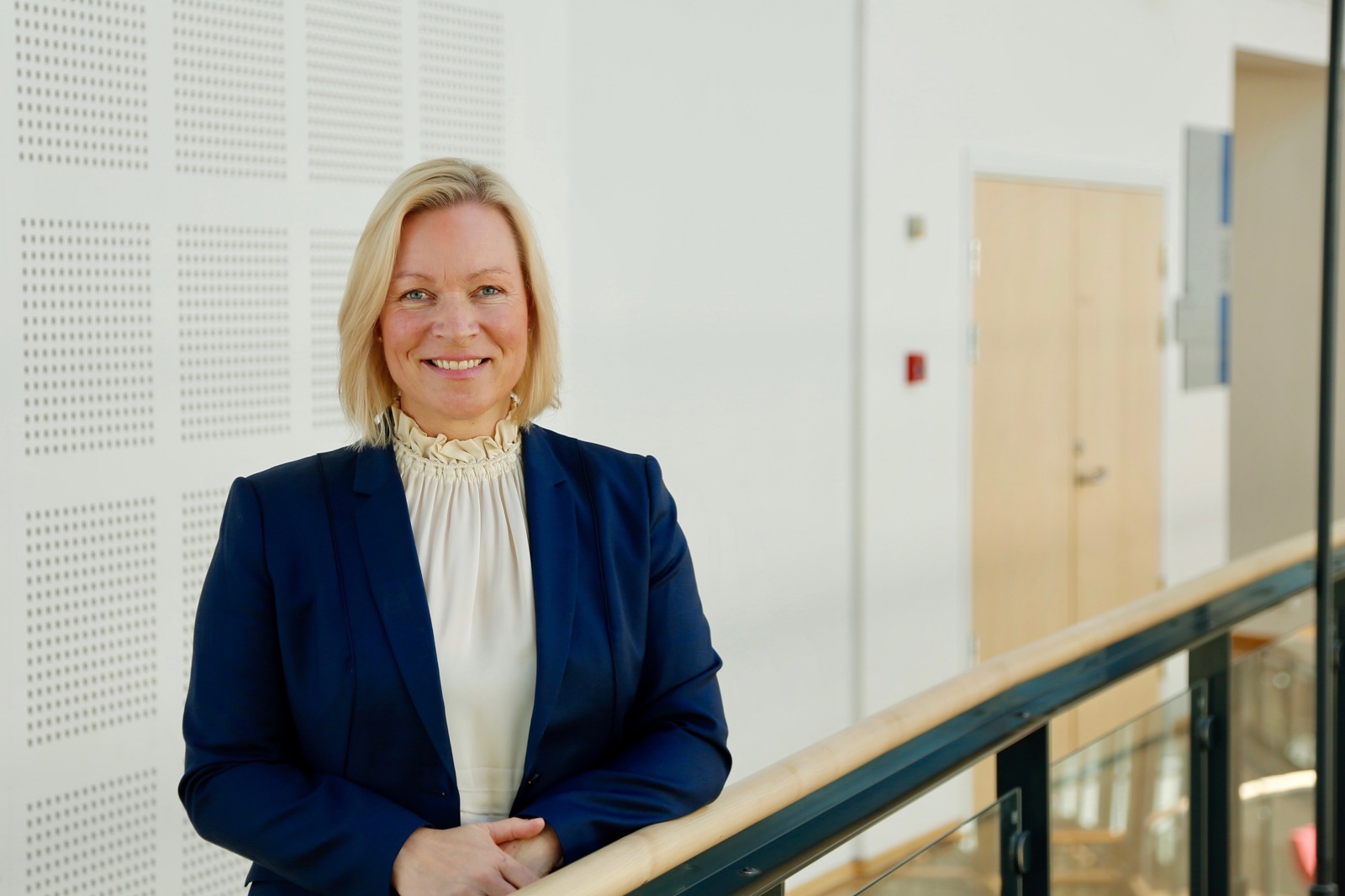
Meet Kjerstin Kleyne Braaten
KONGSBERG Technology Forum organizes key technology leaders in the KONGSBERG business areas. Meet Kjerstin Kleyne Braaten working on Deck Machinery & Motion Control in Kongsberg Maritime.
-
Text:Stuart Brewer
Photo:Ove Ronny Haraldsen
Which technologies/areas are you and your division currently focusing on?
“We are working in numerous areas including electrification, remote control & autonomy and integration, both in traditional markets and growing segments such as aquaculture, LNG, fishery, tugs and strategic segments within naval and unmanned surface vehicles.
But first, a few words about the overall strategy. Kongsberg Maritime aims to lead the market in innovation, sustainability and digitalisation and the strategy is to build on our portfolio breadth and capabilities to develop a sustainable competitive advantage. The enablers to do this are spares & components, products & systems, solutions & integrated solutions and concepts.
Our strategic priorities are to secure profitable and sustainable growth with a focus on the six market segment priorities mentioned above and aftermarket growth initiatives; securing operational excellence and a customer-focused culture; integrating our products with the Kongsberg Maritime portfolio and establishing a digital layer on top of our mechanical products.
When it comes to our vision, nothing has changed over the past year. We want to develop the Deck Machinery & Motion Control Division as the leading global supplier of handling and motion control equipment.

The strategy is all about building on our portfolio breadth and capability to achieve a sustainable & competitive advantage. This is imperative to bring value to our customers and stakeholders.
We have to be in prime position to take advantage of the trends which are shaping the maritime future; but we must bear in mind that our customers first of all care about operational efficiency, sustainability, increasing safety and reliability and reduced downtime.
So, in a nutshell we have the three strategic priorities mentioned above and several, what we call, “Must Win” battles, including secure contracts for LNG and fishery where we add integration benefits into a Kongsberg Maritime solution. Also, we aim to improve our competitive edge for fishery winch systems, anchor-mooring-towing winches and steering gears.
In terms of business performance, we as a division has struggled to make a profit on the declining revenue after the offshore peak. In 2020 the division was able to turn into profit for the end-to-end business after significant losses over the past years.
From 2021 onwards, we are expecting the business to stay profitable based on a reduced cost base, with improved execution and operational flow, and growth from improved competitiveness.
Going forward, our activities will to a large extent be focused on the main customer requirements of operational efficiency, sustainability, and safety & reliability. These will drive the adoption of digitalisation, electrification, remote & autonomy, and deeper integration amongst others.
Deck Machinery & Motion Control solutions and initiatives are a good fit with these trends and will support our efforts in capturing opportunities in growing markets. We firmly believe technology is at the core of our further sustainable development, leading to benefits for our customers and industry stakeholders”.
What excites you most about technology development?
“Well for a start I’m not a techy person. For me, technology is an enabler for business, but when it comes to technology and KONGSBERG specifically, I really want to contribute, influence, drive the maritime technology to meet the needs of customers and the market.
I’m also very passionate about sustainability. I recently gave a presentation to the leadership team about why sustainability is relevant to the Deck Machinery & Motion Control division. To me, sustainability is synonymous with the future; it’s about caring, it’s about our children’s future, our planet and nature. When reviewing the UN Sustainable goals, the choice of number 8 - about Decent Work and Economic Growth - is one of the highlighted goals that is very relevant for the division I work in.
We’re in the process of creating a sustainable identity in KONGSBERG that needs maintaining and developing. We want to be identified as a customer-oriented, profitable company that seeks cooperation. We are the division that goes from being in the red to being in the black; that was our short-term strategy and goal for 2020. Profitable business was our ticket to a continued existence.
I also spoke of sustainability versus profitability, which affects us and perhaps the entire organisation. My dream is for sustainability to go hand in hand with profitability and technology. Our customers often ask us to deliver technology that gives them energy savings, lower emissions and greater safety for employees on board vessels. Here, we as a company have a lot to contribute.
For us, 60-80% of the contract value lies in our supply chain. It’s important to be aware of this when creating our sourcing strategy for the division and company”.
And your thoughts on technology collaboration across the Kongsberg group?
“I think there’s a lot of good technology collaboration between the divisions and business units, however, I believe we can further improve on utilizing synergies. We have established the Technology Conference and more recently internal Tech Talks broadcasts that enables more collaboration across business units and knowledge sharing focusing on the technology, trends and market developments relevant to all of KONGSBERG. I would say technology collaboration gives us a competitive advantage in the maritime industry.
As part of the budget process 2021 and Deck Machinery & Motion Control Division’s strategy, we have tagged as green all the strategic initiatives that KONGSBERG can define as sustainable and that will give us competitive advantages in the future.
We are still in the early stages when it comes to thinking about sustainability throughout the value chain and we have customers, for example in the aquaculture sector, that we can learn a lot from. “The best short-term strategy is to be profitable today,” says Kongsberg Maritime President Egil Haugsdal, “while the long-term sustainable strategy is to be profitable tomorrow.”